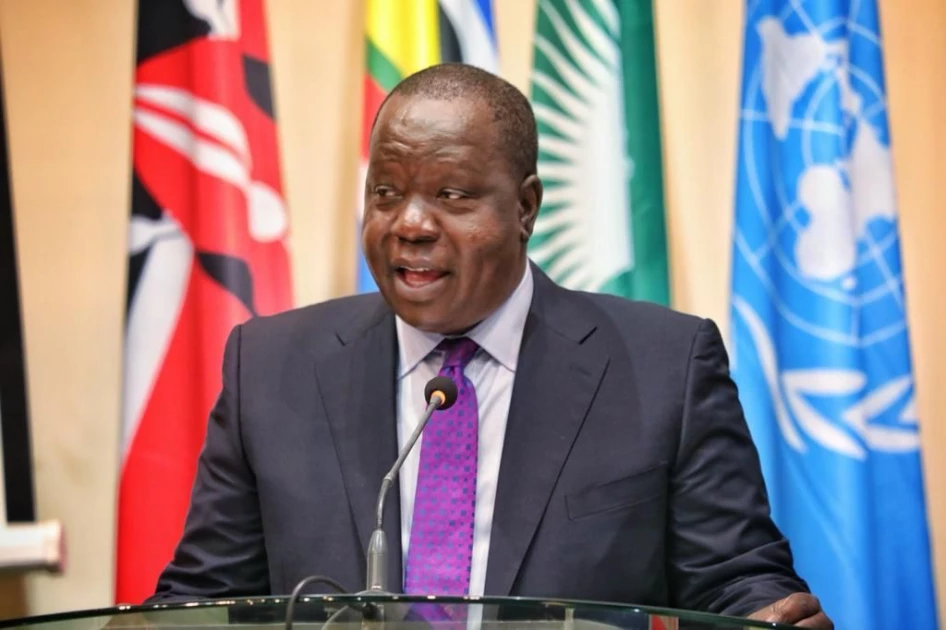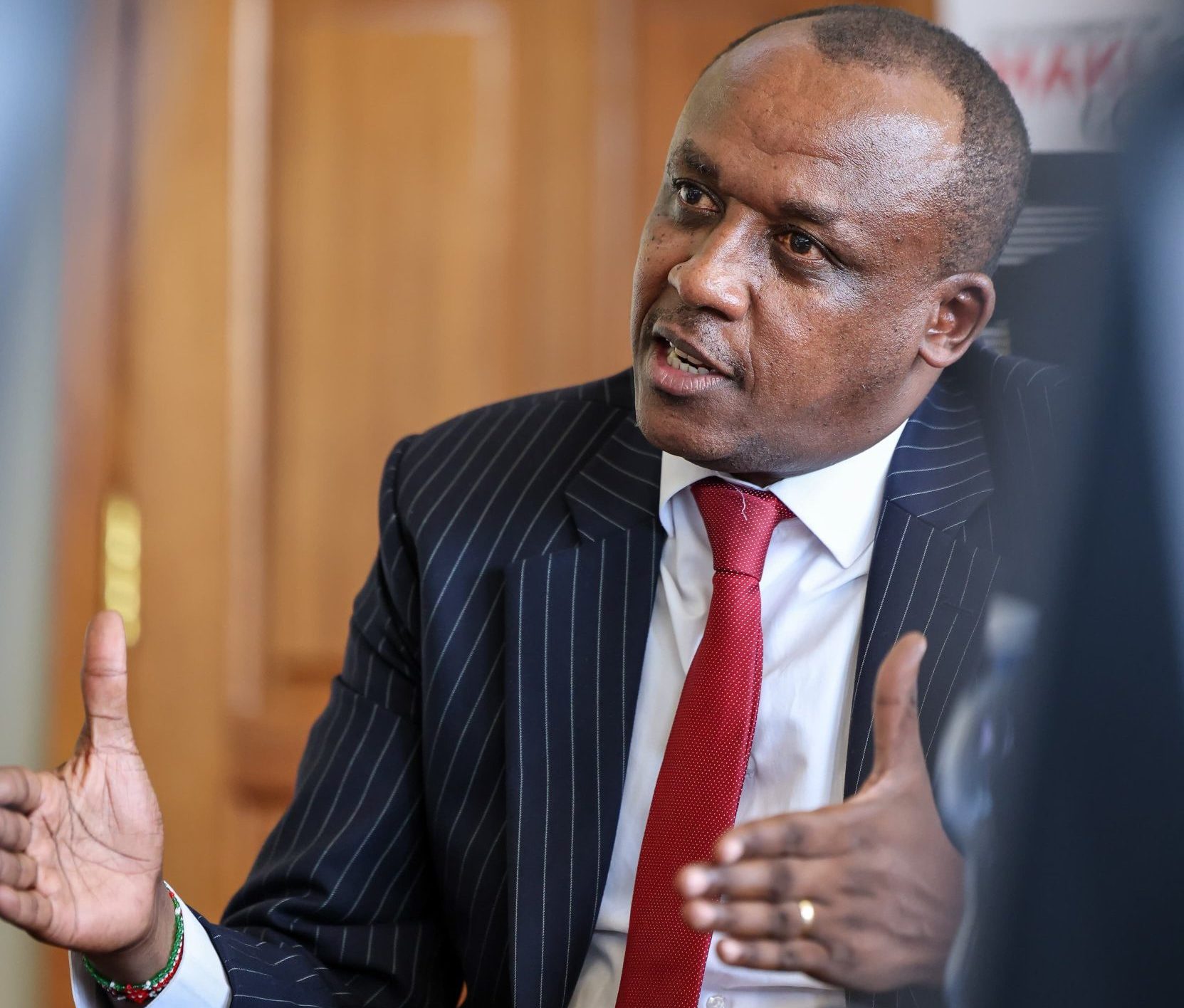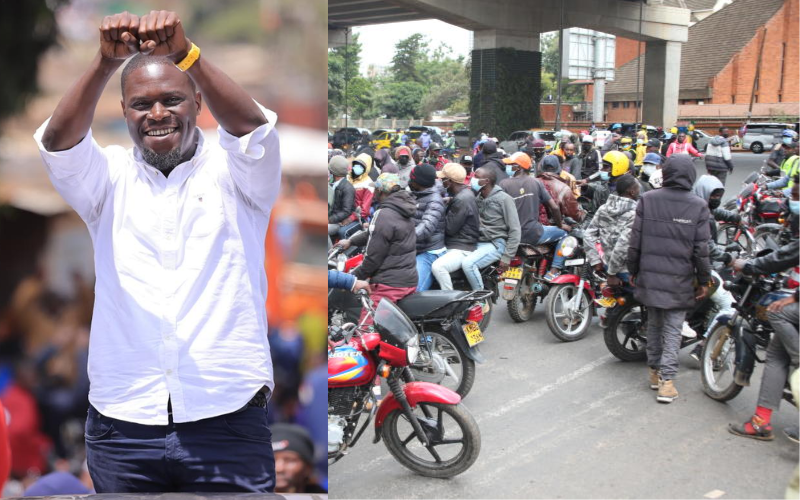Matiang’i Reflects on Gen Z Uprising, Says It Would Not Have Happened Under His Watch
Former Interior CS Fred Matiang’i says the Gen Z-led June 25 protests would not have occurred under his watch. He blames government inaction and failure to utilize intelligence reports. Matiang’i calls for dialogue with youth and a proper inquiry into the unrest.
Fred Matiang’i: On the case of deployment of goons, the government has got sufficient machinery and capability to address this issue. If indeed goons were hired by individuals and the government has evidence that that has been done, then it is right to act on that particular matter #CitizenExplainer Sam Gituku
Posted by Citizen TV Kenya on Tuesday, July 1, 2025
Former Interior Cabinet Secretary Dr. Fred Matiang’i has strongly commented on the Gen Z-led protests that shook Kenya on June 25 of the previous year, especially the breach of Parliament by demonstrators. In an exclusive interview on Citizen TV, Matiang’i asserted that such a situation would have been handled very differently if he had still been at the helm of the country’s internal security. He stressed that the unprecedented event, where Parliament was overrun, would not have taken place under his leadership.
Matiang’i acknowledged that the right to protest is a fundamental democratic right protected by law. However, he emphasized that there must be a clear boundary when public safety, property, and national order are at risk. According to him, freedom of expression should not compromise the countrys stability. He added that the Gen Z protests were well-organized and peaceful compared to past demonstrations by the opposition, which often descended into violence and disorder.
The former CS noted that, had he been in charge, he would have relied on early intelligence from the National Intelligence Service (NIS) to preemptively engage with the youth. He would have opened a platform for dialogue, allowing Gen Zs to air their grievances and collaborate on actionable solutions. In his view, this approach would have prevented the situation from escalating to the level of chaos witnessed, particularly the storming of Parliament and theft of state property—something he said had never happened since independence.
Matiang’i expressed disbelief at how such a massive protest could catch the government off guard, suggesting a failure to act on available intelligence. He called for the formation of an all-party inquiry to investigate the events that led to the protest and why the state’s security apparatus failed to anticipate and contain the unrest. For him, the Gen Z revolt was a symptom of deeper systemic neglect of youth issues, and the government should have responded proactively rather than reactively.
He praised President William Ruto’s initial response, saying it had offered some hope. However, he criticized the government’s failure to follow through with sustainable solutions, pointing to the recurrence of protests as a sign of deeper unrest. Matiang’i warned that without meaningful dialogue and action, the country might face even more severe disruptions in the future.
Reflecting on his own time in office, Matiang’i described the immense pressure security agencies were under, especially in combating terrorism in the Coastal and Northern regions. He recalled how the government had to remain alert, particularly in light of attacks like the Dusit complex incident in 2019. In his view, such vigilance and intelligence-led operations could have prevented the June 25 protests from spiraling out of control.
Matiang’i also addressed concerns regarding police brutality during his tenure. He acknowledged that while there were incidents where officers used excessive force, these actions were not institutional but rather the result of individual misconduct. He maintained that police officers are trained to preserve law and order—not to harm citizens—and that there are clear conflict management protocols that officers are expected to follow during demonstrations.
In conclusion, Matiang’i reiterated the importance of government responsiveness, accountability, and communication. He urged the current leadership to engage youth constructively and ensure that state institutions do not repeat the same mistakes, stressing that a proactive rather than reactive approach is key to preventing future unrest.





.jpg)
.jpg)
.jpg)
.jpg)




